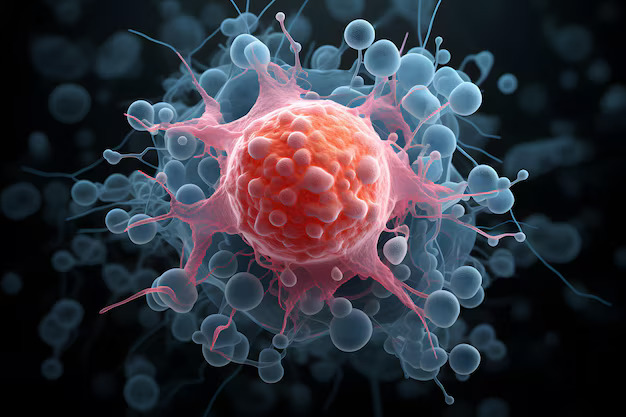Cancer, a devastating disease that affects millions of people worldwide, is defined by the uncontrolled development and spread of abnormal cells in the body. It invades healthy tissues and disrupts organ function. Understanding how cancer affects people is critical for providing assistance and successful therapies. This article digs into its complexities, including kinds, causes, symptoms, opinions, treatment choices, and research advances.
Types of cancer
Cancer may affect the colorful body passageway, manifesting in a variety of kinds and subtypes. Bone, lung, prostate, colorectal, and skin cancers are examples of common bones. Each kind demands a specific treatment method since it affects several organs and cell types. Cancer is not a singular complaint but rather a group of disorders with diverse features. Identifying the precise kind is crucial for developing tailored treatment programs and forecasting the prognosis.
Causes and Threat Factors for Cancer
Cancer is caused by a mix of inherited, environmental, and lifestyle factors. hereditary predisposition or
Exposure to toxins may help it develop. Tobacco, UV light, some chemicals, and infectious agents are all examples of carcinogens. Unhealthy habits, such as poor nutrition, a lack of exercise, and excessive
Alcohol usage also heightens the risks. Understanding these causes and danger factors enables individuals to make more educated decisions and lower their chances of acquiring cancer.
Understanding the Impact of Cancer.
Cancer impacts not only the individuals affected by the disease but also their families and loved ones. It poses emotional and cognitive danger, resulting in anxiety, sadness, and terror. Physical discomfort, exhaustion, and changes in body image caused by therapies all contribute to the load. Family members become caretakers, encountering difficulties in balancing their needs with the cases. Considering the effect of cancer on individuals and families, it is essential to provide comprehensive support along the journey.
Common signs and symptoms
Early detection is critical for prompt response. Though symptoms differ, frequent warning indicators include unexplained weight loss, patient exhaustion, skin changes, lumps or swelling, patient discomfort, changes in bowel or bladder habits, and trouble swallowing. These symptoms may be caused by illnesses other than cancer. Consultation with a healthcare expert is essential if symptoms continue or worsen.Cancer diagnosis requires tests and methods to identify abnormal cells and define the kind and stage of cancer. Imaging tests such as X-rays and CT scans are performed after a physical examination and evaluation of the medical history.
reviews, MRIs, and PET reviews. Laboratory studies, such as blood tests, necropsies, and inheritable testing, dissect cells and inheritable material to determine cancer status. Understanding individual tools promotes accurate and timely opinions.
Treatment Options:
Treatment is determined by the kind of cancer, its stage, location, and general health. Surgery, radiation therapy, chemotherapy, immunotherapy, targeted therapy, and hormone therapy are among the treatment options. Surgery removes malignant apkins, but radiation therapy kills cancer cells using high-energy shafts. Chemotherapy destroys cancer.Medicines are administered to cells all across the body. Immunotherapy uses the vulnerable system to combat cancer. Targeted and hormonal therapies selectively target cancer cells or the hormones that promote their proliferation. Understanding treatment alternatives and their negative effects allows for informed decisions.
Support for Cancer and Loved Bones
Cancer may be isolating, but there are resources and support services available. Support groups, counseling services, internet networks, and educational resources provide emotional and practical assistance. Healthcare professionals, social workers, and non-profit organizations help people get the help they need. Understanding accessible resources encourages stopgap, flexibility, and commission.Exploration and advancements
Cancer research is constantly evolving, with breakthroughs in understanding cancer biology and generating novel therapies. Experimenters look for novel cures, targeted treatments, and immunotherapies to improve outcomes and raise survival rates. inheritable testing and verified drug knitter therapies to an individual's inheritable composition. It is critical to be updated on the latest advancements in exploration.
Conclusion and Hope.
Although cancer presents obstacles, there is a solution for the future. Understanding cancer biology, early detection methods, and therapy improvements provide exciting opportunities for improved problems and higher survival rates. Raising consciousness, encouraging investigation, and focusing on prevention methods are critical. We may fight to make cancer a manageable disease by recognizing its effects, supporting people afflicted, and investing in research. Together, we can improve the lives of individuals affected by cancer.Seek expert medical counsel and assistance if diagnosed with cancer. Reach out to healthcare experts, support groups, and internet forums for funding and assistance. By taking action and supporting the battle against cancer, we can make a difference and contribute to a future free of this devastating disease.
Note This work is intended for instructive purposes only and should not be construed as medical advice. Consult a qualified healthcare practitioner for an evaluation, treatment, and personalized suggestions.
